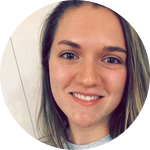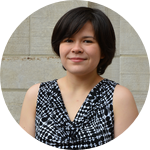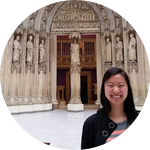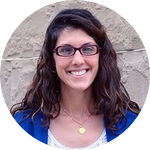About This Project
Drinking water contaminated by metals, most notably lead, poses health risks to children and adults alike. However, commercially available at-home detection systems cost about $30 per test. Given the recent lead scare in Flint, Michigan and high levels of lead in many cities across the world, we plan to create a inexpensive biosensor suitable for use at home.
Ask the Scientists
Join The DiscussionWhat is the context of this research?
In 2014, the Collins group at MIT published a paper detailing a paper-based sensor made by freeze-drying cell-free extract and the biosensor onto paper. The cell-free extract contains the transcriptional and translational enzymes necessary to produce proteins and it is activated by rehydrating the paper with water. The paper sensor can be stored in a refrigerator and costs less than a dollar to produce. The Collins group added RNA-based biosensors to detect small molecules, and in the presence of the molecules the sensor produced a colorimetric response in less than an hour. We are expanding this fast, easy-to-use system to detect metals.
What is the significance of this project?
Our sensor will benefit society by enabling citizens to test their drinking water for less than a dollar. The current DNAzyme sensor that we are developing detects thallium and lead. The circuit can also be adapted to any other toxic metal contaminants including copper, arsenic, and antimony.
Technologically, our system incorporates novel functions for DNA. Our sensor utilizes DNAzymes that cleave in the presence of thallium or lead, and can be modified to work with any DNAzyme. The cleavage produces a DNA strand that triggers a toehold switch, resulting in protein expression and a change in color of the sensor. As far as we know, we are the first to pair DNAzymes with toehold switches such that a DNA molecule acts as a trigger.
What are the goals of the project?
The funds collected will allow us to complete the proof-of-principle research that we have already started and expand to more metals. This requires custom made DNA and cloning. To determine the effectiveness of the DNAzymes, we use electrophoresis techniques to see whether our DNAzyme cleaves in the presence of our metal samples. If the previous step is successful, we test our sensor in cell-free extract to see if there is a color change.
Along with testing our DNAzyme, we experiment with our toehold switch to determine its reactivity. This has become an optimization process as we change the amount of cell-free extract and concentration of DNA needed.
After we are successful on both fronts, we will begin experimenting with the freeze-drying process.
Budget
The University of Pittsburgh has been generous enough to give us a lab and supplies for our project. We were also fortunate enough that the team last year left behind more specific supplies, such as restriction enzymes, that we use on an almost daily basis.
To make our project a reality, there are still many supplies that we need. A majority of our budget is for PURExpress In Vitro Protein Synthesis Kit, which is the cell-free extract we are using to test our system in. Metal samples (lead, thallium, and erbium), which will be used to test sensitivity of our biosensor.
The rest of the budget will go towards creating all the genetic parts of our system and converting these parts into iGEM BioBrick standards (T4 DNA Ligase). We confirm all of our parts through sequencing by GeneWiz.
Endorsed by
Meet the Team
Affiliates
Affiliates
Team Bio
The 2016 Pittsburgh iGEM team is advised by faculty and graduate students from the University of Pittsburgh and Carnegie Mellon University. The team formed in late March. We spent the next month discussing projects to work on for the summer, and we started our experimental work in early June. The iGEM team is excited to develop an innovative sensor, and they can’t wait to go to Boston!
Maddie Perdoncin
Maddie Perdoncin is a junior majoring in Biology and minoring in Chemistry at the University of Pittsburgh. Her research interests include genetic engineering and molecular biology, both of which she is able to explore through this project. She plans to pursue a career in healthcare.
Maya Lemmon-Kishi
Maya Lemmon-Kishi is a junior bioengineering student at the University of Pittsburgh with anticipated minors in polymer engineering and chemistry. Her research interests lie in genetic engineering, tissue engineering, and regenerative medicine which she has previous experience in. Maya hopes to combine her interests to pursue a career in research focused on organ regeneration. What Maya likes the most about iGEM is the unique opportunities, such as creating and leading her own research project.
Claire Chu
Claire Chu is a junior studying chemistry and psychology with a minor in Chinese. Her research interests lie both in biochemistry and psycholinguistics, and she hopes to combine the two in a research career. Through iGEM, Claire is involved with designing a project from the foundation, which is a unique and exciting experience for undergraduate researchers.
Lisa Antoszewski
Lisa Antoszweski was the mentor of this year's iGEM team. She is an assistant professor of biology at Grove City. With her knowledge and experience in molecular biology, she has offered great support to the team.
Aife Ni Chochlain
Aife Ni Chochlain is a junior majoring in Molecular Biology and History in the University of Pittsburgh. Her research interests include genetic engineering and computational modeling, the second of which she has previous experiences. Aife wishes to continue research in genetic engineering and modeling of complex systems. iGEM allows her the opportunity to explore synthetic biology as an undergraduate and explore leadership opportunities in a research setting.
Venkata Peddada
Venkata is a upcoming senior bioengineer at the University of Pittsburgh. For the last two years, he has worked with Dr. Partha Roy to study profilin expression in breast cancer cells. By doing iGEM, he aims to get more experience in the synthetic biology field.
Project Backers
- 14Backers
- 101%Funded
- $1,064Total Donations
- $76.00Average Donation








